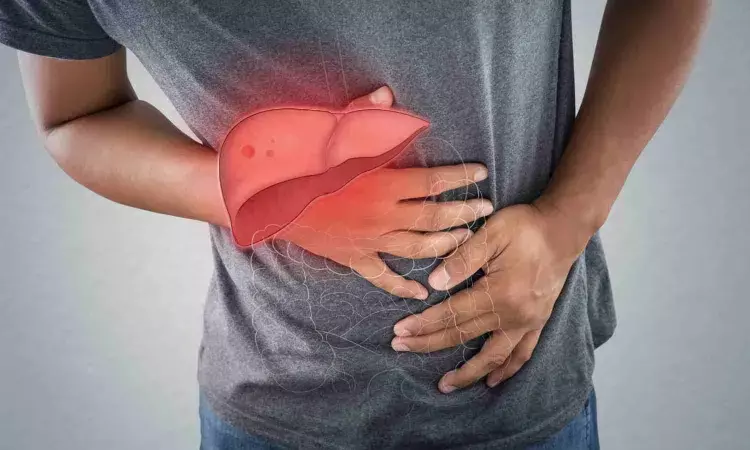- Home
- Medical news & Guidelines
- Anesthesiology
- Cardiology and CTVS
- Critical Care
- Dentistry
- Dermatology
- Diabetes and Endocrinology
- ENT
- Gastroenterology
- Medicine
- Nephrology
- Neurology
- Obstretics-Gynaecology
- Oncology
- Ophthalmology
- Orthopaedics
- Pediatrics-Neonatology
- Psychiatry
- Pulmonology
- Radiology
- Surgery
- Urology
- Laboratory Medicine
- Diet
- Nursing
- Paramedical
- Physiotherapy
- Health news
- Fact Check
- Bone Health Fact Check
- Brain Health Fact Check
- Cancer Related Fact Check
- Child Care Fact Check
- Dental and oral health fact check
- Diabetes and metabolic health fact check
- Diet and Nutrition Fact Check
- Eye and ENT Care Fact Check
- Fitness fact check
- Gut health fact check
- Heart health fact check
- Kidney health fact check
- Medical education fact check
- Men's health fact check
- Respiratory fact check
- Skin and hair care fact check
- Vaccine and Immunization fact check
- Women's health fact check
- AYUSH
- State News
- Andaman and Nicobar Islands
- Andhra Pradesh
- Arunachal Pradesh
- Assam
- Bihar
- Chandigarh
- Chattisgarh
- Dadra and Nagar Haveli
- Daman and Diu
- Delhi
- Goa
- Gujarat
- Haryana
- Himachal Pradesh
- Jammu & Kashmir
- Jharkhand
- Karnataka
- Kerala
- Ladakh
- Lakshadweep
- Madhya Pradesh
- Maharashtra
- Manipur
- Meghalaya
- Mizoram
- Nagaland
- Odisha
- Puducherry
- Punjab
- Rajasthan
- Sikkim
- Tamil Nadu
- Telangana
- Tripura
- Uttar Pradesh
- Uttrakhand
- West Bengal
- Medical Education
- Industry
Camu-camu fruit extract may reduce liver fat in Hepatic disease, suggests study

A research team from Universite Laval has shown the benefits of camu-camu on non-alcoholic fatty liver disease, which affects over seven million people in Canada. This exotic fruit reduces liver fat levels.
Over 12 weeks, thirty participants took either camu-camu extract or a placebo at different times in this randomized clinical trial. Participants underwent magnetic resonance imaging (MRI) to determine fat levels in the liver. Scientists observed a 7.43% reduction in liver lipids when study participants took camu-camu extract. With the placebo, they noted an 8.42% increase in liver fat.
“That’s a significant 15.85% difference,” says André Marette, a professor in the Faculty of Medicine and researcher at the Institut universitaire de cardiologie et de pneumologie de Québec – Université Laval (IUCPQ-ULaval), who led the study.
Polyphenols and the microbiota
This effect stems from the polyphenols contained in camu-camu and their relationship with the intestinal microbiota. “The microbiota metabolizes the large polyphenol molecules that cannot be absorbed by the intestine, transforming them into smaller molecules that the body can assimilate to decrease liver fat,” explains André Marette.
His team has identified two potential mechanisms of action for these small polyphenols. “They could reduce lipogenesis, i.e., the formation of lipid droplets in the liver. They could also stimulate lipid degradation by oxidation. A combination of the two mechanisms probably explains the high efficacy of the extract, as we’re playing on both sides of the coin,” reports Professor Marette, who collaborated with scientists at the Institute of Nutrition and Functional Foods (INAF).
However, the team noted a wide variability in response to camu-camu. “We hypothesize that the initial intestinal microbiota influences the response to polyphenols. If we find the factors involved, we may be able to modify the microbiota and increase the extract efficacy,” explains Professor Marette.
Although camu-camu is an exotic fruit, the extract is readily available in capsule form. However, Professor Marette stresses the importance of checking the content of certain polyphenols, as not all commercial products are equivalent.
Cranberries, which also contain a number of partially different polyphenols, could also have a protective effect. In the future, Professor Marette hopes to investigate whether combining camu-camu and cranberry could have a synergistic effect.
Reference:
Anne-Laure Agrinier, Arianne Morissette, Laurence Daoust, Anne-Marie Carreau, Marie-Claude Vohl, André Marette, Camu-camu decreases hepatic steatosis and liver injury markers in overweight, hypertriglyceridemic individuals: A randomized crossover trial, Cell Reports Medicine, https://doi.org/10.1016/j.xcrm.2024.101682.
Dr Kamal Kant Kohli-MBBS, DTCD- a chest specialist with more than 30 years of practice and a flair for writing clinical articles, Dr Kamal Kant Kohli joined Medical Dialogues as a Chief Editor of Medical News. Besides writing articles, as an editor, he proofreads and verifies all the medical content published on Medical Dialogues including those coming from journals, studies,medical conferences,guidelines etc. Email: drkohli@medicaldialogues.in. Contact no. 011-43720751


